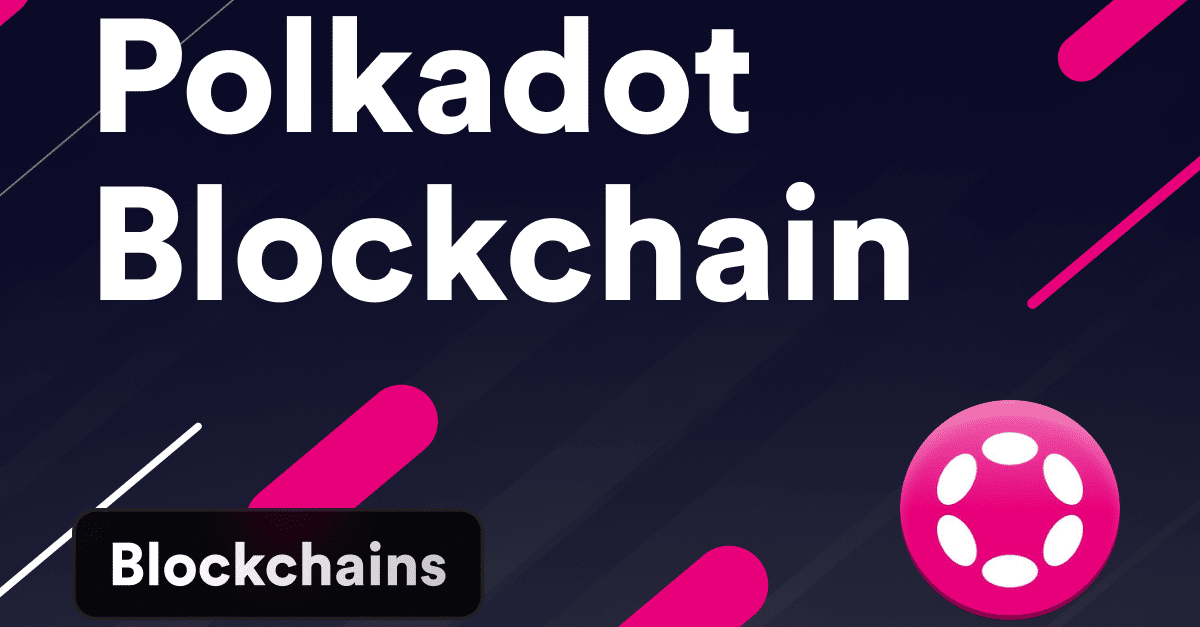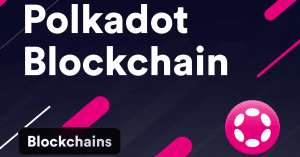Join Our Telegram channel to stay up to date on breaking news coverage
Despite the explosive growth of decentralized finance (DeFi), users still face significant roadblocks. Complex user experiences, scattered ecosystems, and a lack of seamless interoperability make it difficult for the average user to benefit from the technology fully. Navigating multiple platforms, managing assets across chains, and accessing efficient tools often feels like a maze, holding back wider adoption.
That’s where top crypto gainers like Polkadot, Waves, Frax Share, and Jupiter are stepping in. These tokens aren’t just riding the market but solving real usability issues. From Polkadot’s push for safer development to Waves’ DeFi quests, Frax’s liquidity expansion, and Jupiter’s intelligent aggregation, each project is actively building smoother, more innovative experiences that simplify DeFi for everyone.
Biggest Crypto Gainers Today – Top List
Polkadot connects blockchains for secure data sharing and scalability, using a Relay Chain and parachains to enable cross-chain communication and upgrades. Waves is a blockchain platform for DApps, smart contracts, and DeFi, featuring Gravity for cross-chain communication and the Waves DEX. Frax Protocol is a decentralized stablecoin that uses a mix of collateral and algorithmic stabilization to maintain its $1 peg, relying on oracles like Chainlink and Uniswap. Jupiter is a Solana-based DEX aggregator offering efficient trading with features like Limit Orders, DCA, and cross-chain price comparison. Let’s dive in fully to unveil why these top crypto gainers outperform other tokens.
1. Polkadot (DOT)
Polkadot is a sharded multichain protocol that enables different blockchains to operate together, securely share data, and scale efficiently. Designed as a layer-0 metaprotocol, it connects a network of layer-1 blockchains called parachains through its central Relay Chain. This architecture supports cross-chain communication, automatic upgrades without forks, and broad interoperability with public and private chains.
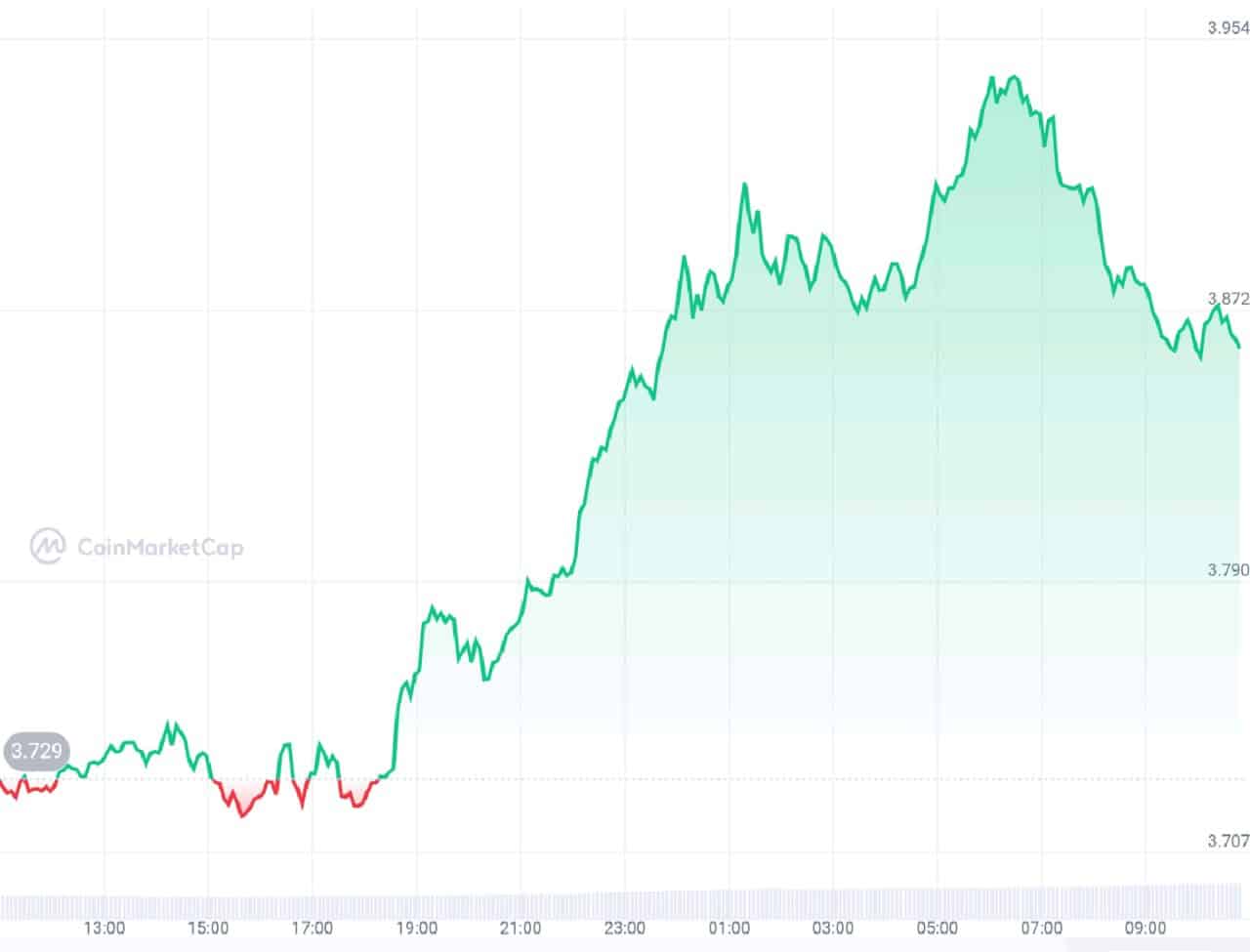
The native token, DOT, plays a central role in the Polkadot ecosystem. It is used for staking to secure the network, participating in on-chain governance, and bonding to add new parachains. DOT holders influence protocol upgrades, validator selection, and treasury decisions, giving them active control over the network’s evolution.
Polkadot (DOT) is trading at $3.860, marking a 3.82% gain over the past 24 hours and a 2.35% increase over the last month. The token has shown some positive momentum recently, with its price ranging between $3.72 and $3.94 within the past day. As a multichain network designed to enable interoperability between blockchains, Polkadot remains a foundational player in the Web3 ecosystem.
Build often. Build secure with Polkadot Assurance Legion 🛡️
PAL is a community-led initiative for making open-source security more accessible:
– covers up to 80% of audit costs
– reimburses bug bounties
– supports open-source security tooling↓↓↓ pic.twitter.com/bWXjwwusXk
— Polkadot (@Polkadot) April 17, 2025
Polkadot has introduced the Polkadot Assurance Legion (PAL), a community-driven initiative to boost open-source security. PAL helps developers build more securely by covering up to 80% of audit costs, reimbursing bug bounties, and supporting the development of security tools in the ecosystem.
For the Polkadot community and its builders, PAL lowers the financial barrier to robust security, encourages more responsible development practices, and strengthens overall trust in the network. It’s a significant step toward making Polkadot a safer and more reliable environment for decentralized innovation.
2. Waves (WAVES)
Waves is a versatile blockchain platform that supports various use cases, including decentralized applications (DApps), smart contracts, and decentralized finance (DeFi). It was created to enhance the speed, utility, and accessibility of blockchain technology for developers and businesses. Over time, its ecosystem has expanded with features like Gravity (a cross-chain and oracle network), the Neutrino protocol for DeFi, and the Waves DEX—a decentralized exchange.
The platform’s native token, WAVES, plays a key role in the ecosystem. It is used for standard transactions, block rewards, and staking. WAVES has an uncapped supply and helps power various products within the Waves ecosystem. The token was also released as an ERC-20 asset, enabling interoperability with Ethereum and opening up new DeFi opportunities.
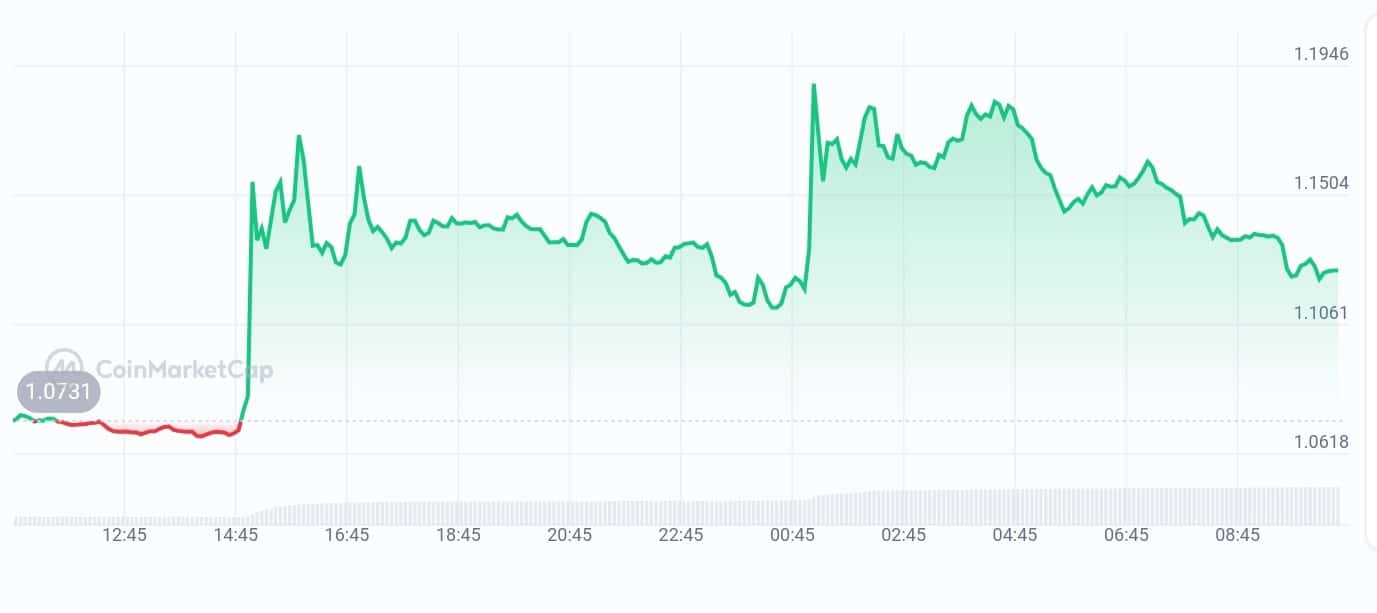
Waves (WAVES) is trading at $1.14, posting a 6.63% gain in the last 24 hours and an 8.38% rise over the past week. The token has seen some healthy volatility, with a daily low of $1.07 and a high of $1.20. Known for its custom token creation and innovative contract capabilities, Waves continues to serve developers and projects looking for flexible blockchain solutions.
🚀 New Quest on Zealy
We’re thrilled to launch a new quest board with our partner — @Unilendone 🔥
Unilend is a decentralized liquidity protocol on the @UnitsNetwork, offering lending, borrowing, and earning interest on your crypto
They’re bringing powerful incentive programs,… pic.twitter.com/MynQKbX5UL
— Waves 🌊 (@wavesprotocol) April 14, 2025
Waves has launched a new quest board on Zealy in collaboration with UniLend, a decentralized liquidity protocol on the Units Network. This initiative allows users to engage with UniLend’s lending and borrowing platform while earning rewards and exploring the broader ecosystem through a gamified experience.
This partnership enhances visibility and cross-ecosystem engagement for the Waves community and investors. It helps attract new users, drives activity on Waves-integrated platforms, and supports long-term growth by aligning with emerging DeFi players, offering real utility and incentive-driven participation.
3. BTC Bull Token (BTCBULL)
BTC Bull Token ($BTCBULL) is a meme coin with one clear mission: to propel Bitcoin toward $250,000 and beyond. Priced at $0.00247 during the presale, $BTCBULL is positioning itself as the ultimate play for the next Bitcoin bull cycle, making it one of the most exciting presale opportunities in 2025. With a growing, passionate community behind it, the goal is to surpass gold and become the world’s No.1 asset.
$BTCBULL is built on Ethereum, secured by smart contracts, and powered by Web3Toolkit technology, ensuring a reliable and decentralized experience. During the presale, participants could stake their $BTCBULL tokens and earn variable APY rewards, with tokens locked until the end of the Community Sale.
Bought the dip, time to sip. 💸 pic.twitter.com/wx7FMpsTYm
— BTCBULL_TOKEN (@BTCBULL_TOKEN) April 19, 2025
For those who purchased through the Best Wallet app, you’ll enjoy seamless integration, including direct token claiming, real-time token balance tracking, and immediate DEX trading upon launch. With over $4.8 million raised during the presale, rewards will be distributed at a rate of 399.54 BTCBULL tokens per ETH block, claimable over the next two years. Don’t miss out on your chance to be part of this rising community and potentially reap the benefits as Bitcoin continues to increase.
4. Frax Share (FXS)
Frax Protocol is a decentralized stablecoin system that introduced the first-ever fractional-algorithmic model for maintaining price stability. Unlike traditional stablecoins fully backed by fiat or crypto, Frax uses a dynamic system where part of its supply is collateralized, and part is algorithmically stabilized, adjusting the balance based on market demand. It operates entirely on-chain and emphasizes minimal governance, relying on oracles like Chainlink and Uniswap to keep FRAX closely pegged to $1.
FRAX is the protocol’s stablecoin, maintaining a soft peg to the U.S. dollar, while Frax Shares (FXS) is the governance and value-accrual token. FXS holders benefit from fees, seigniorage, and surplus collateral. The design incentivizes community participation, with a significant portion of FXS distributed to liquidity providers. This dual-token model supports scalability, decentralization, and innovation in the stablecoin space.
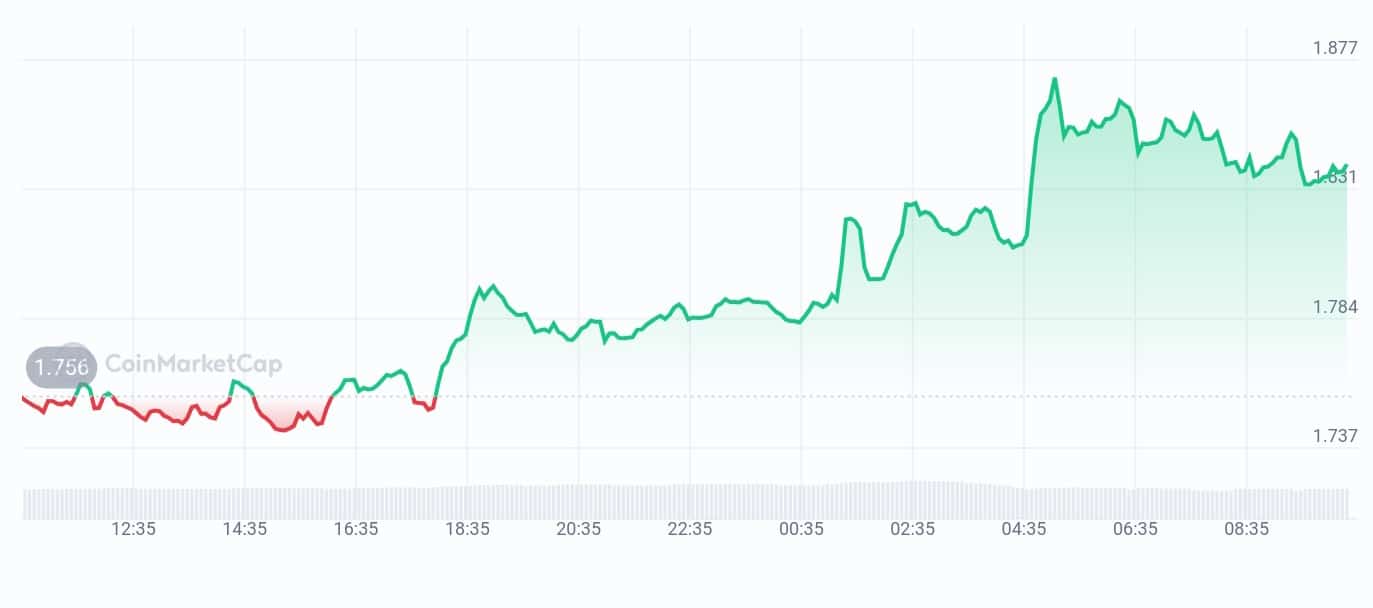
Frax Share (FXS) is currently priced at $1.83, showing a 4.59% increase in the last 24 hours and a 3.07% gain over the past week. The token has moved between a daily low of $1.74 and a high of $1.87. As the governance and value accrual token of the Frax ecosystem, FXS plays a central role in maintaining the stability and decentralized nature of the fractional-algorithmic stablecoin protocol.
BIG NEWS: CROAK x @fraxfinance x Nile 🐸💥
Powered by @LineaBuild
We’re migrating liquidity to a new frxETH/CROAK pool on Nile.
✅ Double rewards: $CROAK + $FRAX
✅ Boosted via eFROGS & veNile
✅ Built on Linea, optimized for DeFiCroak louder. LP smarter. 🌊@NileExchange pic.twitter.com/nVK7DHYdEJ
— Ethereum Frogs 🐸 (@efrogs_on_linea) April 14, 2025
Frax Finance has announced a new liquidity pool on the Nile featuring frxETH paired with CROAK, built on the Linea network. This collaboration brings double rewards in $FRAX and $CROAK and additional incentives through eFROGS and vehicles, making it a high-yield opportunity for liquidity providers.
For the Frax community and investors, this move boosts frxETH’s utility, strengthens its presence across ecosystems, and deepens DeFi integration. It also supports broader adoption of Frax products by tapping into CROAK’s user base and expanding activity on Linea, positioning Frax as one of the top crypto gainers in the DeFi space.
5. Jupiter (JUP)
Jupiter is a leading decentralized exchange aggregator built on the Solana blockchain. It is known for its powerful swap engine that sources the best prices across the network. Jupiter is a critical liquidity hub for the Solana ecosystem, supporting features like Limit Orders, Dollar-Cost Averaging (DCA), TWAP, Perpetuals, and cross-chain Bridge Comparison. By enabling seamless, efficient, and secure trading experiences, Jupiter empowers users to execute advanced DeFi strategies while controlling their assets completely.
The JUP token powers Jupiter’s governance and ecosystem incentives. Holders can shape the platform’s direction while benefiting from Jupiter’s growing utility across decentralized trading, liquidity aggregation, and cross-chain asset transfers.
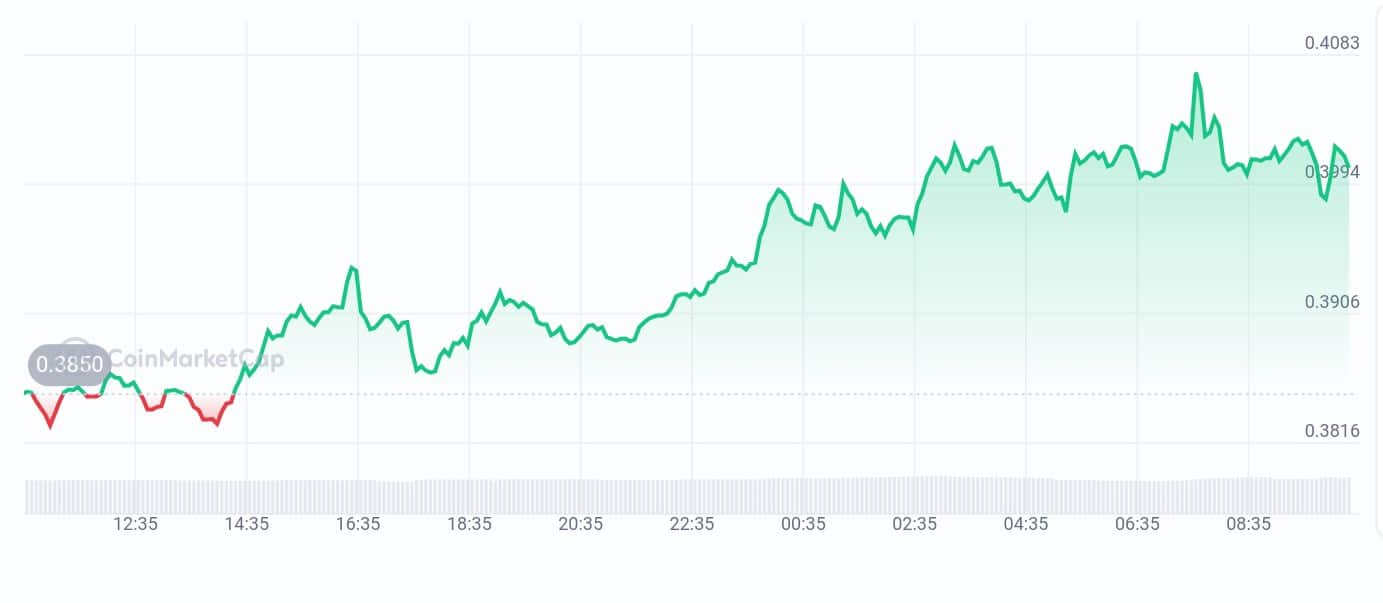
Jupiter (JUP) trades at $0.3903, marking a 3.80% gain over the last 24 hours. During this period, the token fluctuated between a low of $0.3829 and a high of $0.4072. As a key component in the Solana ecosystem, Jupiter plays a vital role in aggregating liquidity and enabling efficient token swaps. This contributes to the broader adoption and performance of decentralized finance (DeFi) on Solana.
Our next-gen aggregator is now live.
🌩️ Meet Juno.
The most powerful routing system ever designed in DeFi. Juno includes:
• Aggregation of multiple routers from Jupiter + @hashflow + @DFlowProtocol
• Metis v1.5
• Self-learning
• New experimental algorithms pic.twitter.com/IUOGPPs89Y— Jupiter (🐱, 🐐) (@JupiterExchange) April 17, 2025
Jupiter’s latest aggregator, Juno, combines multiple routers, including Jupiter, Hashflow, and DFlo, with Metis v1.5 for self-learning and optimized performance. It introduces new experimental algorithms, sets a new standard in DeFi aggregation, and delivers faster, more innovative routing across decentralized exchanges.
Juno gives the Jupiter community faster and smarter DeFi trades by combining top routers and using self-learning algorithms. This means better prices, smoother transactions, and a more substantial overall trading experience.
Read More
Best Wallet - Diversify Your Crypto Portfolio
- Easy to Use, Feature-Driven Crypto Wallet
- Get Early Access to Upcoming Token ICOs
- Multi-Chain, Multi-Wallet, Non-Custodial
- Now On App Store, Google Play
- Stake To Earn Native Token $BEST
- 250,000+ Monthly Active Users
Join Our Telegram channel to stay up to date on breaking news coverage
